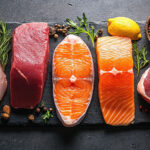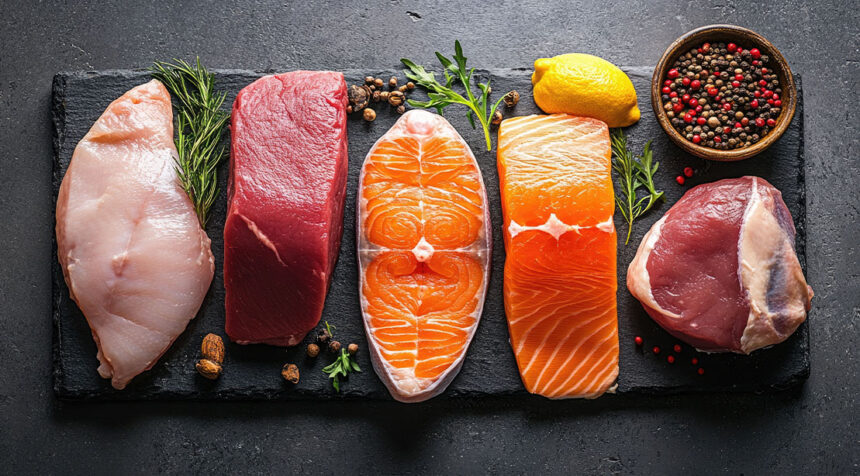For bodybuilders and those who want to gain muscle, following up on a workout with a meaty meal makes sense for packing on the protein, but new evidence suggests that just how lean that meat is could play a substantial role in the speed of protein synthesis. Here’s what you need to know. The new study, published in the American Journal of Clinical Nutrition aimed to discover how the different compositions of meat could help or hinder our muscle building progress after physical activity.
How was the study carried out?
A research team based at the University of Illinois Urbana-Champaign looked at the effects of consuming high-fat pork, low-fat pork, and a carbohydrate meal for control purposes. The high-fat pork contained 20g protein with 20.6g of fat, while the low-fat pork contained the same 20g of protein but only 4.4g fat. The carbohydrate control had zero protein or fat. In all, sixteen physically active adults took part in the trial, and provided repeated blood samples and muscle biopsies at rest and after working out, to measure plasma variables.
What were the results?
The study found that both the high and low-fat pork options stimulated muscle protein synthesis as expected, but the lean pork produced a 47% greater effect than its fattier counterpart post-exercise. This is despite the fact that both pork options contained an identical amount of the same source of protein. “Our work demonstrated that other nutrients in the food matrix, beyond total ingested protein or Essential Amino Acids, can impact the regulation of Muscle Protein Stimulation in healthy adults,” concluded the report.
Despite the small sample size, the data does give athletes a new decision to make regarding their post exercise meat intake. One theory is that the higher fat content led to slower digestion and a delayed synthesis of the protein into the blood. This could mean that overall protein synthesis remains the same or similar in both low and high-fat meats. Still, those looking for faster recovery post pump, or athletes engaging in multistage events like triathlon, might consider leaning into leaner meats to maximize the speed of protein synthesis.







